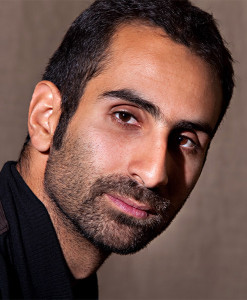I can’t stress enough the importance of commissioning for composers. Based on my experience, those who make their living as composers do so by writing music, not selling their existing works, licensing it out for movie scores, etc. I run into many conductors and ensembles who want to support new music, and I tell them the single best way to do so is by commissioning. Buying scores is great, but if you want to support composers, pay them to write something new.
I recently sat on a panel for the New York Choral Consortium about the commissioning process. There was a lot of enthusiasm and interest from local choirs, but finances were the dominant barrier. In fact, many of the ensembles with the biggest need and hunger for new repertoire (public school choirs, for instance) are often the ones in the worst financial position to generate those works. Here are some of the great ideas that came from that conversation, along with a few of my own.
Don’t be Afraid to Start the Conversation
One attendee at the conference mentioned a hesitancy to approach composers about a commission because they didn’t want to offend them with a too-low number. It’s likely no composer will be offended by your interest in their music. In fact, you may be surprised at how often they are flexible and willing to find a way to make your commission worthwhile for everyone involved. The important thing is to start the conversation and see where it takes you.
Commissioning Consortiums
This is a somewhat recent trend and has been met with general enthusiasm so far. Basically, a series of ensembles band together and contribute to a single commission. Details about the premiere can vary, some organize their concerts to happen simultaneously, others announce it as part of a premiere series or a regional premiere. This can be a particularly wonderful opportunity for public school groups who have local festivals that include pieces where all singers participate. Each choir can commission the same piece and learn it independently and then combine to perform the work as one large ensemble.
Payment Plans / Layaway
There’s already an infrastructure in place for people to buy things they can’t pay for all at once, and the same ideas can be applied to commissioning. Instead of offering a lump some of $2000 dollars, what if you offered the composer a more affordable $500 dollars a year for the next 4 or 5 years? For larger works, this could be part of making the commission a collaborative process. Over the course of a year or two, the composer can be receiving smaller checks while working on the piece and sharing it with the director to make sure it’s the right kind of work for the ensemble.
Performance Royalties and Tours
While commissioning fees are usually the majority of a composers income, they aren’t the only way for them to earn money from a piece. Performance royalties are not insignificant! A composer might be willing to write a new work in exchange for a promise of multiple performances. Not only is it a way to compensate them financially, but if you’re taking your choir on the road it helps get the composer’s name out there and could generate other interest in their music.
Trades
Your choir has a lot to offer, what can you trade in exchange for a new work? Are you planning a recording? Performing at a festival or conference where lots of conductors will be present? What exposure can you offer the artist and their work? Does your institution offer an artist-in-residence program? Get creative! Money’s not the only way to compensate a composer; the right opportunity for exposure and prestige might be the perfect motivation for them to write for your group.
There are tons of creative solutions to commissioning work, many of which will be unique solutions for your particular community. Try brainstorming with your choir, fellow directors, and local composers to see what ideas you come up with. You’ll find these relationships with composers to be unique and lasting throughout the life of your ensemble.

Fahad is the director of See-A-Dot Music Publishing, Inc., a company devoted to the advocacy of new choral works and emerging composers. He is a conductor with C4: The Choral Composer/Conductor Collective and of the Columbia University Glee Club, and voice faculty at the Peridance Institute. He works as a chorister and soloist in New York specializing in new music, particularly improvisation and the use of extended vocal techniques. As a composer, he focuses on music for the voice, but has written for theater, film, and classical ensembles such as the California EAR unit and the TOCCATA Symphony Orchestra. Learn more at www.fahadsiadat.com


